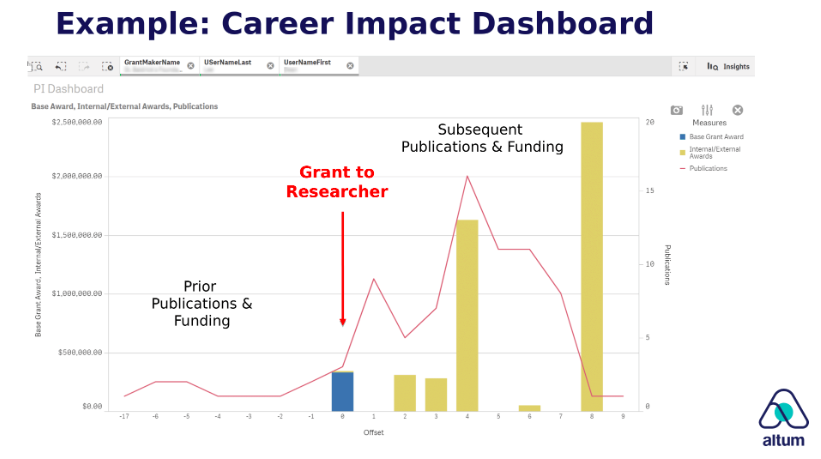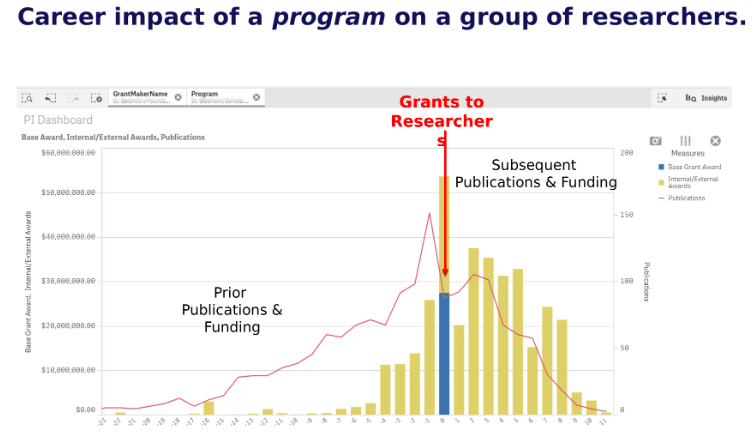This post was co-authored with Brian Armour (CC Technology), James Lovell (Wellcome Trust), Jamie McKee (Altum), Ken Middleton (NIHR), and Brian Yim Lim (Wellcome Trust)
Over the past 18 months, the ORCID ORBIT project has been working with the funding community to ensure researchers and funders get the maximum benefit from ORCID during the funding application process. The project started with a survey of data requirements and an assessment of process pain points. Next, the project launched a number of pathfinder projects. We are now pleased to share an update on some of the exciting integrations developed during the project.
Altum’s ProposalCENTRAL
Altum’s grant management/tracking system, proposalCENTRAL, is used by over 100 research funding organizations. At the project start, Altum already had a basic ORCID integration, available to all funding organizations using their platform. During 2018, 17 of those funders required iDs from their researchers as part of the grant application process and 12 requested them. Twenty-three of the funders using the proposalCENTRAL are now requiring iDs, and 47% of all grant applicants on the platform have an iD. During the ORBIT project, Altum implemented additional workflows to further support both funders and researchers during grant application and reporting.
Researchers can now pull all their ORCID data (publications, awards, degrees, affiliations) into their proposalCENTRAL profile, and use this data in their Applications and Progress Reports by selecting from a list rather than re-typing. proposalCENTRAL also uses ORCID to help funders stay connected to their researchers’ accomplishments after a grant ends, and to use ORCID data to evaluate the impact of programs long after individual grants have ended. Together, these improvements save researchers time and provide funders with accurate work metadata to help them during the application process, progress reporting, and impact assessment as shown, for example, in the dashboards below.


Importantly, proposalCENTRAL also posts information about awarded grants back to the ORCID records of the awardees. This allows the researcher to get recognition for their grants, as well as enabling them to share this information with other organizations and individuals. For example, these funding records can be associated with future publications, making it possible to automatically track outputs associated with grants.
Wellcome Trust, NIHR, and CC Grant Tracker
Wellcome and NIHR have been long-time supporters of ORCID, with Wellcome being one of the ORCID launch partners back in 2016. Wellcome is a signatory of the ORCID funder open letter, and both use CC Grant Tracker, a grant management platform from CC Technology. For the past five years, these organizations have used CC Grant Tracker’s ORCID integration to make it mandatory for Lead applicants to use an authenticated ORCID iD. Through the ORBIT project, which CC Technology is also participating in, all three parties have collaborated to reduce the burden on applicants and also improve metadata quality to support reporting and integration.
Until last month, researchers applying for funding through CC Grant Tracker had to provide publication information by typing it directly into a textbox on the application form. More often, they copied and pasted from a list of their publications they kept elsewhere, formatting that list specifically to each funder’s specifications. This could be a tedious and time-consuming task for applicants (especially if they didn’t have a research assistant to do it for them!). It impacted funders as well, resulting in inconsistent formatting that made applications hard to read. The multiple ways that researchers can cite publications also created inconsistent metadata, hindering analysis. Inconsistent methods of providing research outputs were getting in the way of answering questions such as whether there is a relationship between where a researcher publishes and the success of their grant application.
In April 2019 CC Grant Tracker was updated with a new, improved ORCID integration. Wellcome have now gone live with the changes, and NIHR plan to do so shortly. Now, when a researcher completes an application form, they can import publication information that they have previously connected to their ORCID record directly into CC Grant Tracker. Formatting is done automatically to the funder’s specification; applicants no longer need to spend time doing this themselves. This ensures consistency across application forms, making them easier to read for grants advisors, committee members, or anyone reviewing the application.
But that’s not all – researchers can also give permission for data about their successful applications to be added to their ORCID record. When a grant is awarded, the lead applicant’s ORCID record is automatically populated by CC Grant Tracker with details of the grant. Crucially, as this assertion is made by the funder (in this case Wellcome or, soon, NIHR) – and this assertion is explicit – anyone who views that ORCID record can be certain that the grant information was added by the funder themselves, not a third party.
Learn more
For more information about ORCID in funding workflows, please visit our funder web pages and funding submission systems workflow documentation — and look out for information about several upcoming webinars about the use of ORCID by funders, featuring speakers from Altum, CC Technology, and ORCID funding organization members.
